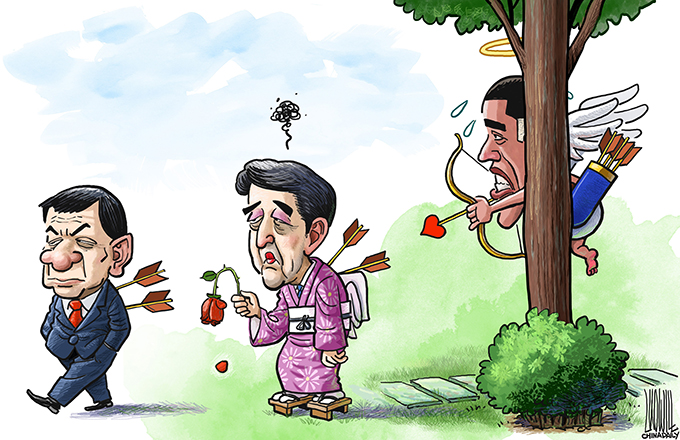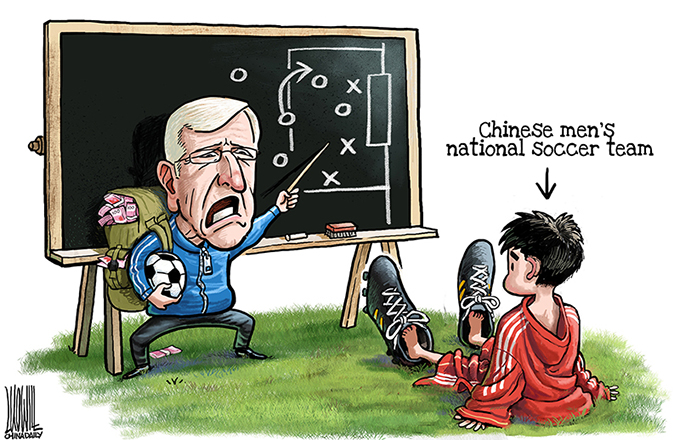A fact that Party leaders have endorsed
 |
|
Chinese President Xi Jinping, also general secretary of the Communist Party of China (CPC) Central Committee and chairman of the Central Military Commission, addresses the 6th plenary session of the 18th CPC Central Commission for Discipline Inspection (CCDI) in Beijing, Jan 12, 2016. [Photo/Xinhua] |
Ever since he became the general secretary of the Communist Party of China in November 2012, the world has been watching Xi Jinping for his robust anti-corruption campaign and his tough foreign and security policies. Many compare him with late Chinese leader Deng Xiaoping and Chairman Mao Zedong.

Party cadres have been increasingly pronounced in demanding unwavering loyalty to the Party with Xi as the "core", because he navigates through China's challenges that flow not just from the country's unprecedented rise but also from its increasingly complicated external conditions.
The Sixth Plenum of the 18th CPC Central Committee, therefore, only officially endorsed what has been China's "new normal" for most China-watchers.
Deng introduced the concept of "core" leader in 1989 when Jiang Zemin was selected Party chief. And Jiang laid the foundation of collective leadership norms that was further reinforced by his successor Hu Jintao.
The Sixth Plenum does underscore the value of "collective leadership", yet it calls on all Party members to "closely unite around the Party's Central Committee with Xi Jinping as the core".
Prima facie, the "core" honor appears to be a "coronation". But in addition to the singular authority Xi has enjoyed for four years, the new honor implies he will have far more to answer given his increased responsibility to arrest China's ongoing economic drift which, in turn, could trigger social rifts.
On the positive side, however, stronger leadership will make Xi's policies and moves more predictable, making it easier for other countries to build partnerships with China. And a stronger Xi will be able to better implement his Belt and Road Initiative and ensure his policies have a far-reaching impact in China.
In terms of regional and global geopolitics, the rise of a stronger Xi would be conducive to the resurgence of Asia and give a moral boost to dwindling groupings of emerging economies such as BRICS (Brazil, Russia, India, China and South Africa) and BASIC (BRICS minus Russia) that are seeking greater say and space in the new global governance mechanisms like the G20 and the much fatigued Bretton Woods institutions.
In the end, however, like his grand Belt and Road vision, the "core" honor for Xi will be dissected for its nuanced Chinese characteristics that leave a lot to interpretations and the developments in the coming years.
The author is a professor at the School of International Studies in Jawaharlal Nehru University, New Delhi.
- China's development, stability require strong core leadership: commentary
- Strong leadership core to build stronger nation
- Party members called on to unite around CPC Central Committee with Xi as 'core'
- 12 keywords of the Communique of the Sixth Plenary Session
- Key points of the communique after the Sixth Plenary Session
- Infographic: Top agendas of all 'Sixth Plenary Sessions'
- Facts about the 6th plenary session of the 18th CPC Central Committee
- What to expect from CPC's upcoming plenary session?



















